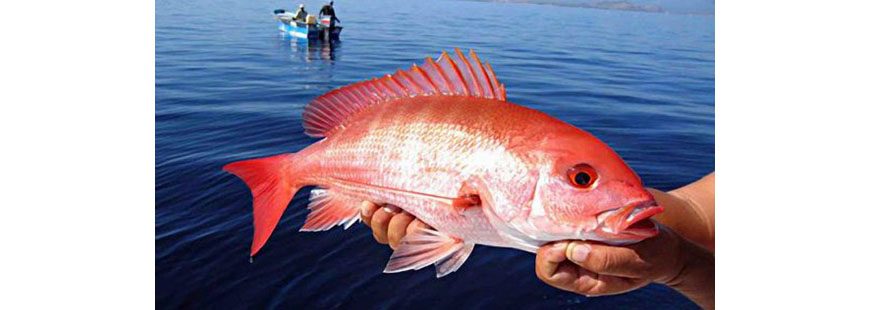We should all care about the red snapper decision in the Gulf of Mexico, as it eliminates public input and circumvents regional council authority granted by the Magnuson-Stevens Act. Photo courtesy of NOAA.
Who cares about red snapper in the Gulf of Mexico? If you come from a coastal state like me (Rhode Island) you should be aware of this month’s Commerce Department decision as it could impact us all.
On June 14, 2017, the Department of Commerce announced an agreement between the National Oceanic and Atmospheric Administration (NOAA), members of the U.S. House of Representatives and the five Gulf Coast states to extend the 2017 recreational red snapper season by 39 weekend days in the Gulf of Mexico for private recreational anglers.
On the surface this agreement sounds good, and some in the recreational fishing community lauded the action. But others criticized it because over the years NOAA had reduced red snapper fishing days to rebuild the stock, and it was working. Many scientists, conservationists and fish policy makers feel it premature to liberalize regulations, as they believe red snapper overfishing will occur in one year and damage rebuilding efforts. Additionally, the action ignored our national fishing law, the Magnuson-Stevens Fishery Conservation and Management Act, by not vetting the proposal/decision through a public input process and the Gulf of Mexico Fishery Management Council.
This decision to circumvent input from the public and the Gulf of Mexico Fishery Management Council has important ramifications for all coastal states. If a decision like this holds, it means the Department of Commerce can force NOAA to make any decision it wants them to make and ignore regional councils such as the New England and Mid-Atlantic Councils that regulate fishing in my area.
Public input and regional control of such issues as warming water and its impact on fish movement, energy development in the ocean and its impact on the fish, and fishery management issues in general can all be taken out of regional control. Theoretically the federal government could advocate for striped bass fishing in federal waters to the detriment of the fish, drop recreational minimum size of summer flounder for short-term gains at the expense of rebuilding plans, or allow commercial fishing vessels to fish with no regard for sustainable fisheries and stock rebuilding plans.
In a press release on June 14, 2017, the Center for Sportfishing Policy, an industry group composed of recreational fishing industry supporters in tourism, boat manufacturing and fishing gear and tackle retailers, said, “As a result of today’s action, red snapper season will reopen for private recreational anglers in the Gulf out to 200 miles every Friday, Saturday and Sunday, including Monday and Tuesday of the July Fourth holiday and the Monday of Labor Day.”
Meredith Moore, director of Fish Conservation at the Ocean Conservancy said, “Red snapper regulation liberalization will almost certainly lead to overfishing of red snapper, plain and simple. Private anglers of the Gulf of Mexico deserve a real solution to the problem of shortening seasons for red snapper, not an ill-conceived quick-fix. Years of sacrifices and tough choices by fishermen and managers have begun rebuilding this valuable fishery. We’re finally seeing more fish in the water and any short-sighted decision that puts those gains at risk is an affront to their hard work.”
Rep. Raúl Grijalva, the top Democrat on the Natural Resources panel, agreed that the decision will interfere with ongoing efforts to recover the red snapper population.
In a press statement, Rep. Grijalva said, “Gulf Coast businesses literally cannot afford a fishery management fiat that eliminates all the progress that has been made… The public needs to see a scientific justification for this plan before it goes into effect.”
Grijalva pointed to the Magnuson-Stevens Act, noting the law is intended to ensure the use of scientific data for fisheries decisions.
He noted that the Federal Register announcement of the extension suggested the amended fishing season “may delay the ultimate rebuilding of the stock by as many as six years.”
The decision to liberalize red snapper fishing is important to fishing communities throughout the nation because the Department of Commerce is not putting fish first but rather revising regulations for the short-term financial gains of a few.
Congressmen receiving political pressure from industry sectors such as tourism, large fishing retailers, boat manufacturers, etc. have found a sympathetic ear with leadership at the Department of Commerce that has facilitated a short-term financial gain strategy. Putting short-term financial gains first, rather than putting the fish first, will lead to overfishing and possibly depleted fish stocks that are impossible to rebuild.



Pingback: Clips – July 2017 – FIsh First Coalition